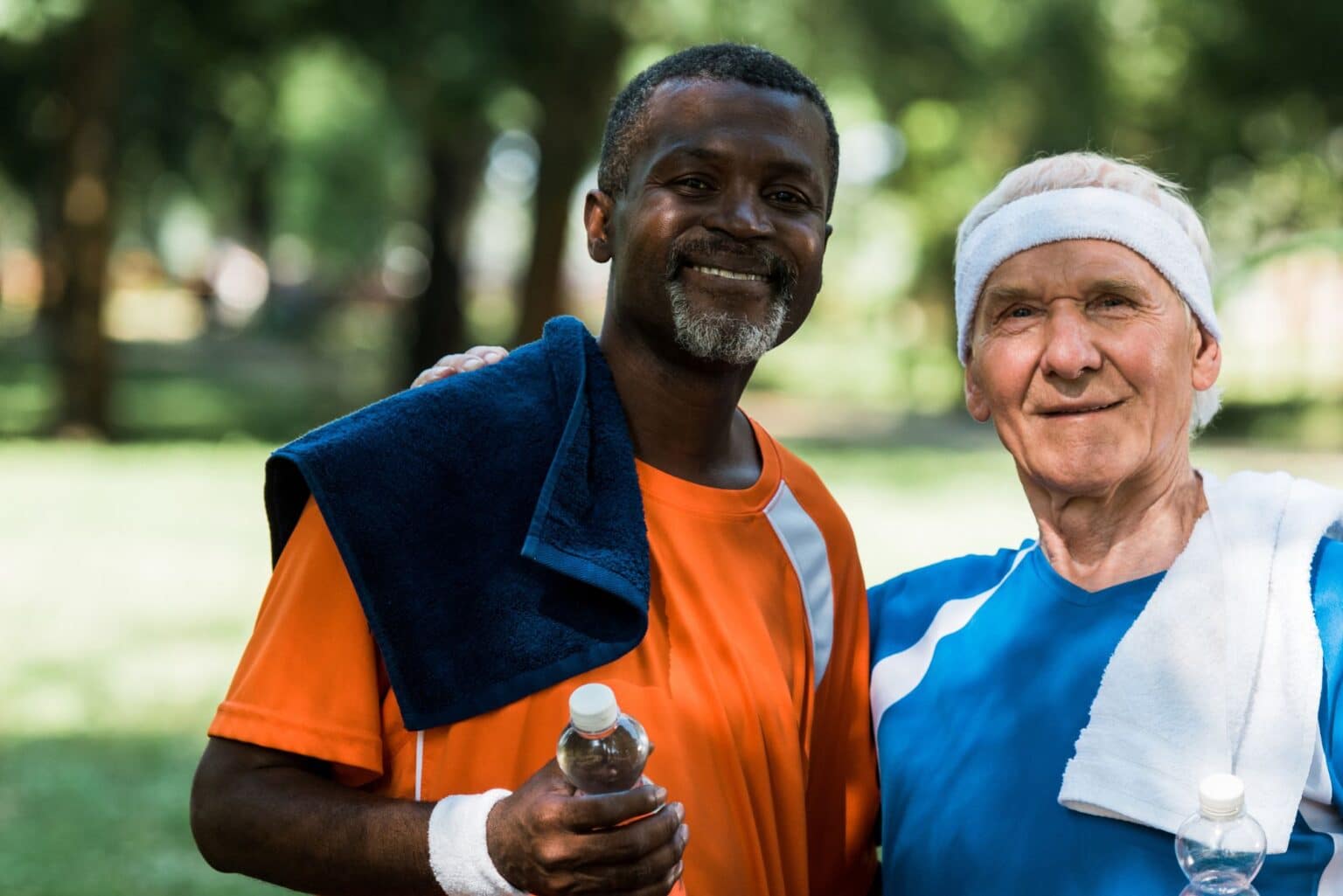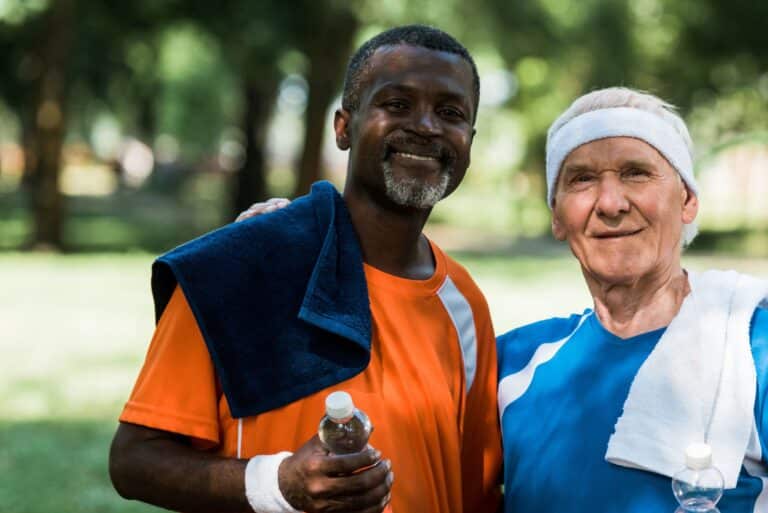


Wondering what not to do before a marathon to avoid ruining months of hard training? This article outlines the critical mistakes to avoid in the final days leading up to your race.
Using ibuprofen before a marathon might seem like a good idea to preempt pain or soreness, but it could cost you dearly. NSAIDs like ibuprofen interfere with your body’s natural inflammatory response, crucial for muscle repair and recovery. Rather than easing your journey, ibuprofen might actually hinder performance by preventing proper muscle healing.
Taking NSAIDs like ibuprofen can lead to gastrointestinal issues, a nightmare scenario during a long race. Studies show a higher likelihood of gastrointestinal problems among marathon runners who use ibuprofen. Battling stomach cramps or an upset stomach while maintaining your pace isn’t worth the risk.
The dangers extend further. Ibuprofen usage is linked to an increased risk of kidney injury, especially in dehydrated conditions. Long-distance runners often face dehydration, making this a serious concern. Hyponatremia, a potentially fatal condition caused by electrolyte imbalances, is also more likely to occur in runners who take ibuprofen.
There’s also no evidence that ibuprofen enhances athletic performance or effectively reduces exercise-induced muscle soreness. Stick to natural recovery methods and avoid ibuprofen before your marathon.
As race day approaches, the temptation to squeeze in an extra training session can be strong. However, overtraining in the final race week is a common mistake that can lead to injury and fatigue. This is where tapering comes into play: reducing your training volume to allow your body to recover and prepare for marathon training while running.
Start tapering four days before the marathon. During this period, slightly increase your carbohydrate intake to ensure your glycogen stores are topped up. The goal is to arrive at the starting line feeling fresh and ready, not exhausted from overtraining.
Tapering doesn’t mean doing nothing at all. Light, easy runs can help keep your muscles loose without adding stress. Trust your training and give your body the rest it needs. Overtraining in the final days can undo weeks of hard work, leaving you feeling flat on race day.
Most runners, especially those attempting their first marathon, benefit significantly from a well-planned taper. It’s a tried-and-tested strategy endorsed by elite runners and part of the training plans for major races like the Abbott World Marathon Majors and the New York City Marathon. Listen to your body, reduce your training intensity, and let your muscles recover for the big race ahead.
Marathon day is not the time for culinary adventures or breaking in new gear. Unfamiliar food before a marathon can lead to gastrointestinal problems, which would be a huge mistake during the race. Stick to familiar foods that your body can eat while eating, and avoid experimenting with new foods or drinks.
Equally important is your gear. New shoes, untested kits, or unwashed socks can cause discomfort and even injury. Discovering that new shoes cause blisters or a hydration pack doesn’t fit well can ruin your race. Test all your gear during training runs to ensure everything works perfectly for you.
High-fibre foods, new hydration strategies, or unfamiliar race fuels can cause unexpected digestive reactions. The last thing you want is to be sidelined by stomach issues when you should be focusing on your performance. Stick to what your body handles well, and save experimentation for after your marathon.
Carb-loading is essential for marathon preparation, but a last-minute carbohydrate binge can do more harm than good. Overeating carbohydrates the night before the race can lead to bloating and discomfort. Instead of feeling energised, you might feel sluggish and heavy due to water retention from excessive carbohydrate intake.
A gradual approach to carbohydrate intake is more effective. Consume smaller, carbohydrate-rich meals in the days leading up to the marathon. This maintains steady glycogen stores without the negative side effects of a carb overload. Balanced meals that include a mix of carbohydrates, proteins, and fats are ideal.
We recommend a balanced diet in the days leading up to the race. Avoid the mistake of overloading on carbs the night before and focus on a steady, balanced approach to fuel your best performance.
Staying hydrated is crucial for marathon runners, but cramming fluids the night before the race is not the way to do it. Drinking excessive amounts of water before bed can lead to frequent urination, disrupting your sleep and leaving you tired on race day. A good night’s sleep is just as important as proper hydration.
Overhydration can also dilute sodium levels in the blood, increasing the risk of hyponatremia. Avoid this by focusing on consistent hydration in the days leading up to the race rather than drinking a lot of water at once. The recommended daily water intake is 72 ounces for athletic women and 104 ounces for athletic men.
To stay hydrated without compromising your sleep, limit fluid intake several hours before bed. This balances hydration levels while ensuring you get the rest needed to perform your best on race day.

Caffeine can be a double-edged sword for marathon runners. While it can boost energy levels, excessive caffeine consumption can lead to dehydration, anxiety, and energy crashes. One runner shared a story about taking too much caffeine before a marathon, resulting in anxiety and an uncomfortable first 10 miles, followed by a significant energy crash.
Know your limits with caffeine and practice your caffeine strategy during training runs. Avoid high doses of caffeine on race day and focus on using it in moderation. Energy gels and sports drinks often contain caffeine, so be mindful of your overall intake.
Staying hydrated is essential, and excessive caffeine can counteract your hydration efforts. Balance is key. Avoid caffeine, high-fat foods and focus on nutrient-dense options that support sustained energy levels without the risk of caffeine-related issues.
As race day approaches, it’s easy to let anxiety take over. However, rest and relaxation are just as important as physical preparation. A good night’s sleep is critical for muscle repair and growth, directly impacting your performance. Start getting to bed early four nights before the marathon to ensure you are well-rested.
Avoid packing your schedule with activities the day before the race. Spend time relaxing and conserving your energy. Techniques like yoga and deep breathing can help reduce pre-race anxiety and promote better sleep. Consider pampering yourself with a massage or spa treatment to enhance relaxation and worry less.
Resting the day before the pre-marathon won’t lead to a loss of fitness if you’ve trained properly. Focus on low-intensity activities like a slow 20-minute run to calm your nerves without straining your body. Stay positive, stay warm, and trust in the hard work you’ve put into your training.
Planning your race day logistics in advance can significantly reduce stress and help you focus on your performance the day ahead. Establish a clear travel plan to ensure you arrive at the race site on time. Having a backup transportation plan can prevent last-minute panic if something goes wrong.
Arriving early at the race site allows you to familiarise yourself with the surroundings and locate essential facilities like bathrooms. Knowing where to meet friends and family after the racing can also help avoid chaos and ensure a smooth post-race experience. Plan ahead and avoid any surprises on race day.
Consider public transportation options or arrange for someone to drop you off at the start line. The peace of mind from a well-thought-out plan will allow you to focus on the run as an elite runner in the long run and enjoy the experience from start to finish.
Preparing for a marathon? Personalised coaching can make all the difference. Here at Coach the Run, we offer tailored 1:1 online coaching through our Run Your Best Race programme, led by London Marathon winner and our Head Coach, Mike Gratton.
With Run Your Best Race, you’ll receive expert one-to-one coaching tailored to your goals. Whether you’re chasing a sub-3-hour or sub-4 hour marathon or dreaming of your first race finish, London Marathon winner Mike Gratton is here to guide you to success.
Sign up now and get exclusive access to Mike’s top training tips, injury prevention techniques, nutrition advice and more. Plus, you’ll receive personalised training plans based on your current fitness level and race goals.
In this article, we discussed the importance of proper training and preparation for a marathon. We explored the key factors to consider when creating a training plan, such as setting realistic goals, incorporating cross-training and rest days, and gradually increasing mileage. We also touched on the importance of nutrition and hydration in maintaining energy levels during a long race.
Additionally, we learned about various resources available for marathon runners, including online coaching services like our very own Run Your Best Race programme. With expert guidance from experienced coaches like London Marathon winner Mike Gratton, you can improve your performance and reach your race goals.
So go into your next marathon feeling prepared and confident, knowing that you have taken the necessary steps to properly train and fuel your body.
Running a marathon is an amazing accomplishment and should be enjoyed every step of the way!
You should avoid taking ibuprofen before a marathon because it can hinder your muscle recovery, lead to gastrointestinal problems, and raise the risk of kidney injury, particularly if you’re dehydrated. Prioritise your health and performance by choosing safer alternatives!
Gradually increasing your carbohydrate intake with smaller, balanced meals in the days leading up to the marathon is key for effective carb-loading. This approach ensures your body is well-fueled and ready to tackle the race!
Overtraining in the final week before a marathon can result in injuries and fatigue, hindering your performance. Taper your training to give your body the recovery it needs to excel on race day!
It’s crucial to stick to familiar foods before a marathon to avoid potential digestive issues. By choosing what you know your body handles well, you’ll set yourself up for a successful race.
To ensure a good night’s sleep before race day, limit your fluid intake and practice relaxation techniques while avoiding heavy activity. This will help you feel rested and ready to perform your best!
Join our mailing list to stay up to date with the latest UK running events, training tips, and exclusive offers on running products. Rest assured, we value your privacy and would never dream of selling your address. Sign up now…

Share this article
Pick up any running book or running magazine, listen to a coach down a running...
I’ve completed a few marathons now, and even the more recent ones where I have...
Pronation refers to the way your foot rolls inward when you walk or run. Understanding...
A half marathon is a popular distance for many runners. It’s long enough to challenge...
Introduction Run Less Run Faster is a scientifically-backed training method that allows experienced runners to...
As a beginner looking to start training for a marathon, one of the most common...
We’re here to make sure you’re up-to-date with the latest running tips, events and product discounts – we’ve always got your back! Rest assured, we value your privacy and would never dream of selling your address.
BONUS: Sign up today and receive a FREE code for our Sub-4-Hour Marathon Plan
Your privacy settings
Manage Consent Preferences
Necessary
Analytics
Embedded Videos
Marketing
Facebook Advanced Matching
Facebook CAPI